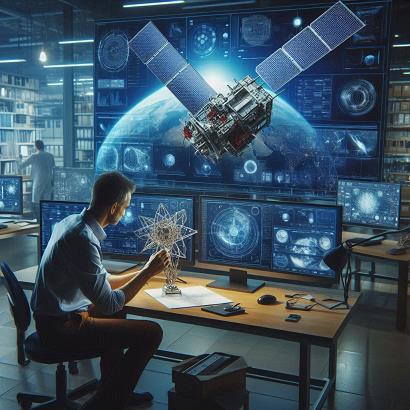The quest for instant likes has transformed our interactions, creating an environment where social validation is measured in real time. This shift has led to platforms that enhance user engagement and provide instant feedback. Meanwhile, advancements in space technology, particularly in spacecraft and satellite systems, are transforming our exploration of the universe and its resources.
Instant Likes and the Future of Space Tourism
Commercial space travel is an exciting trend, with parties like SpaceX, Blue Origin, and Virgin Galactic making space exploration accessible to private citizens and researchers. SpaceX’s Falcon 9 rocket has lowered launch costs, enabling more frequent missions. This democratization fosters innovation as new competitors strive to develop faster, safer spacecraft.
Advancements in Satellite Technology

Satellites are essential for global communication, weather forecasting, and navigation. Recent advancements have produced smaller, cost-effective satellite, which serve missions from Earth observation to deep space exploration. Like SpaceX’s Starlink, satellite constellations aim to provide worldwide internet coverage, enhancing connectivity, especially in remote areas.
Robotics and Artificial Intelligence in Space Exploration
Robotics and artificial intelligence (AI) are essential in space exploration. Rovers like NASA’s Perseverance and China’s Zhurong use advanced AI to autonomously navigate Mars, gather data, conduct experiments, and search for signs of past life. This integration enhances mission capabilities and reduces the need for human intervention, making exploration safer and more efficient.
Sustainable Practices for Future Missions
As interest in space exploration increases, so does the need for sustainable practices. Space debris poses a significant threat to missions, prompting organizations to develop technologies for tracking and managing it.
Researchers are also exploring in-situ resource utilization (ISRU) techniques, like extracting water from lunar ice, to support long-term missions by providing fuel and life support.
Future of Space Technology
The future of space technology is promising. Today’s innovations will shape tomorrow’s successes as we aim to establish a presence on Mars and beyond. Cooperation among governments, private companies, and international organizations is crucial for progress. Continued investment in research and public interest will encourage the next years of scientists and engineers.
Space technology goes beyond exploring the cosmos; it represents our quest for knowledge and pushing our planet’s limits. Each advancement brings us closer to unlocking the universe’s mysteries and discovering our place.
